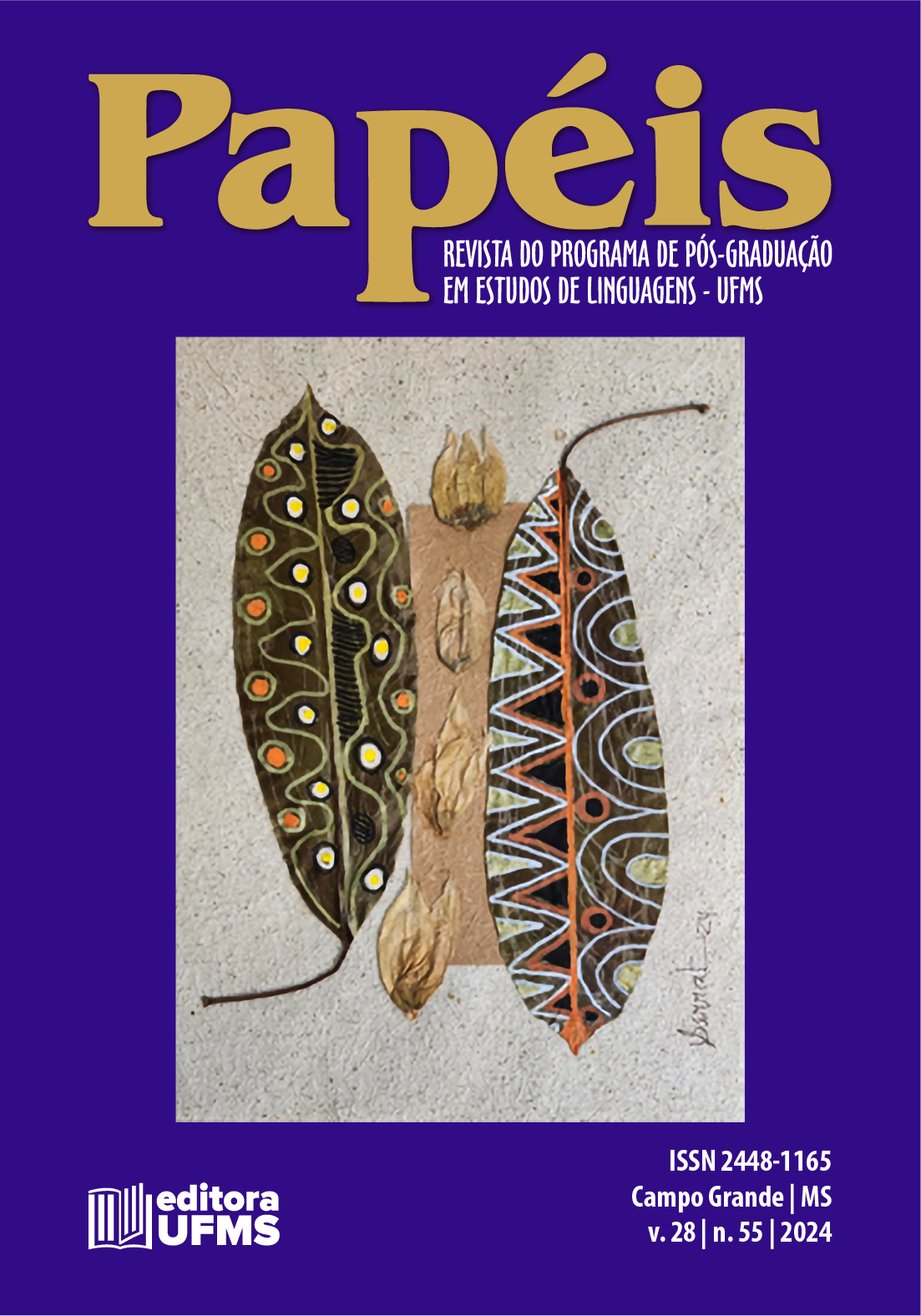THE SPREAD OF FAKE NEWS IN THE BRAZILIAN POLITICAL CONTEXT AND THE DISCOURSES OF "GOOD" AND "BAD" GOVERNMENT
Abstract
What do fake news reveal when studied quantitatively? In this paper, with the aim of understanding the persuasive strategies used by the enunciator-destinator towards the enunciatee-destinatee, we will look at the making-believe presupposed in a corpus of fake news denied during the month of January 2023 by the Lupa verification agency. Anchored in Discursive Semiotics, our discussion will prioritize the values at stake in the corpus under study, as well as the themes and discourses that permeate this fake news. To understand the enunciator-destinator's make-believe, our study will also look at the intertextual and interdiscursive relationships that the denied news establishes with other texts/discourses. Finally, our aim is to show some traces of the image of the actor who enunciates the denied texts. Recalling that the subject of the enunciation is an implicit actant logically presupposed by the enunciation, while the actor of the enunciation is defined by the totality of his speeches (GREIMAS; COURTÉS, 2013). The results of this study indicate that, predominantly, the enunciator-destinator of fake news seeks to denigrate the image of the opponents of former president Jair Bolsonaro, while in immanence, the discourse that echoes is that of a good former governor.
References
BARROS, Diana Luz Pessoa de. Teoria do discurso: fundamentos semióticos. 3.ed. São Paulo: Humanitas/FFLCH/USP, 2002.
BARROS, Diana Luz Pessoa de. Algumas reflexões sobre o papel dos estudos linguísticos e discursivos no ensino-aprendizagem na escola. Estudos Semióticos. vol. 15, n. 2. Dossiê temático “Contribuições da Semiótica e de outras teorias do texto e do discurso ao ensino”. Editoras convidadas: Diana Luz Pessoa de Barros, Lucia Teixeira e Eliane Soares de Lima. São Paulo, dezembro de 2019. p. 1-14. Disponível em: www.revistas.usp.br/esse. Acesso em 20/06/2023.
BARROS, Diana Luz Pessoa de. As fake news e as anomalias. Verbum. Cadernos de pós-graduação, vol. 9, n. 2. São Paulo: PUC-SP, p. 26-41, 2020. https://revistas.pucsp.br/index.php/verbum/article/view/50523/pdf. Acesso em 20/06/2023.
BARROS, Diana Luz Pessoa de. Contrato de veridicção: operações e percursos. Estudos Semióticos [online], vol. 18, n. 2. São Paulo, agosto de 2022. p. 23-45. Disponível em: https://www.revistas.usp.br/esse. Acesso em: 20/06/2023.
FIORIN, J. L. Polifonia textual e discursiva. In: BARROS, D. L. P. de; FIORIN, J. L. (Orgs.) Dialogismo, polifonia e intertextualidade: em torno de Bakhtin. Editora da Universidade de São Paulo, 1994. p. 29-38.
FIORIN, José Luiz. Em busca do sentido: estudos discursivos. São Paulo: Contexto, 2008.
GREIMAS, Algirdas Julien. Sobre o sentido II. São Paulo: Nankin/ EDUSP, 2014.
GREIMAS, Algirdas Julien; COURTÉS, Joseph. Dicionário de Semiótica. São Paulo: Contexto, 2013.
XXXXXXXXXXXXXX. No prelo.
Sites Pesquisados:
https://lupa.uol.com.br/jornalismo/categoria/verifica%C3%A7%C3%A3o. Acesso em 28/02/2024.
Autores que publicam nesta revista concordam com os seguintes termos:
- Autores mantém os direitos autorais e concedem à revista o direito de primeira publicação, com o trabalho simultaneamente licenciado sob a Licença Creative Commons Attribution que permite o compartilhamento do trabalho com reconhecimento da autoria e publicação inicial nesta revista.
- Autores têm autorização para assumir contratos adicionais separadamente, para distribuição não-exclusiva da versão do trabalho publicada nesta revista (ex.: publicar em repositório institucional ou como capítulo de livro), com reconhecimento de autoria e publicação inicial nesta revista.
- Autores têm permissão e são estimulados a publicar e distribuir seu trabalho online (ex.: em repositórios institucionais ou na sua página pessoal) a qualquer ponto antes ou durante o processo editorial, já que isso pode gerar alterações produtivas, bem como aumentar o impacto e a citação do trabalho publicado (Veja O Efeito do Acesso Livre).

Este obra está licenciado com uma Licença Creative Commons Atribuição-NãoComercial 4.0 Internacional.




